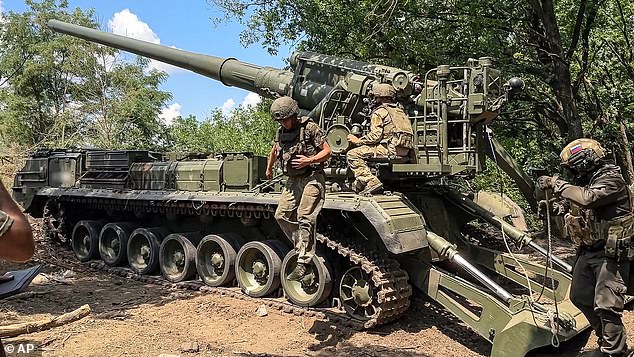- Moscow mayor promises to pay huge bonus to new recruits
- The bonus is twice the average annual Russian salary.
- Britain has been warned it faces ‘all-out war’ with Russia
Moscow’s mayor has agreed to give city residents twice Russia’s average national salary as a bonus for enlisting in the military, in the latest sign of desperation in Vladimir Putin’s brutal invasion of Ukraine.
Mayor Sergei Sobyanin today signed a decree stating that Muscovites who agree to join Putin’s bloody war in Ukraine will receive an additional 1.9 million rubles (£16,760).
According to Statista, the average annual salary of a Russian is about 880,000 rubles (£7,767).
The new bonus will be added to the existing salaries and benefits received by Russian soldiers, the mayor’s office said, bringing their total pay to 5.2m roubles (£46,000).
Generous payments to volunteers have helped Russia avoid a new nationwide mobilization after a troubled campaign in 2022 sparked a mass exodus of people to neighboring countries.
But some economists say the payments create risky imbalances.
Moscow’s mayor has agreed to pay city residents twice Russia’s average national salary as a bonus for enlisting in the military.
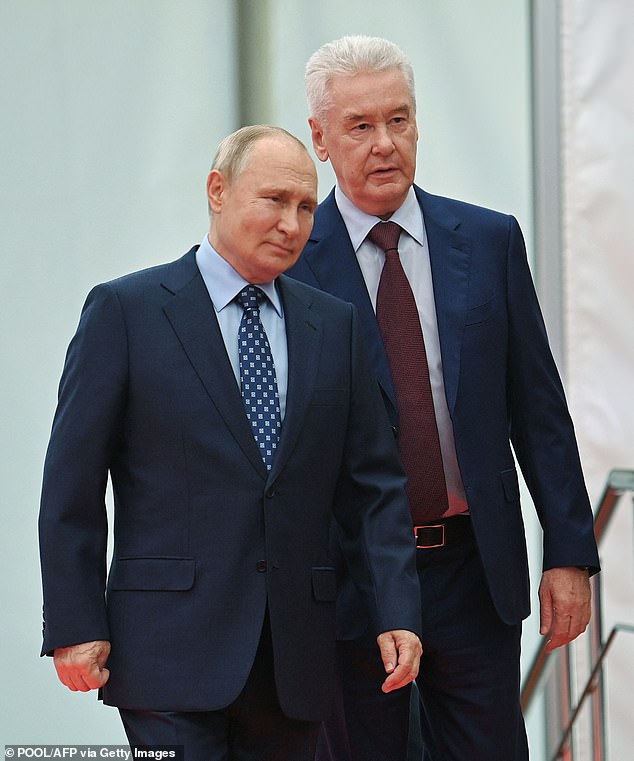
Mayor Sergei Sobyanin (pictured behind Putin) today signed a decree stating that Muscovites who agree to join Putin’s bloody war in Ukraine will receive 1.9 million rubles (£16,760).
They argue that the high salaries of soldiers serving in Ukraine have become a benchmark for the rest of the economy, leading to a spiral of wage growth across all sectors as workers demand raises to bring their salaries in line with what the military pays.
According to Russian authorities, some 190,000 people have volunteered to fight in Ukraine this year, in what Moscow describes as a “special military operation.” In 2023, 490,000 contracts have been signed, they say.
The city of Moscow, where much of Russia’s educated workforce is concentrated, is considered to lag behind many other regions in the number of volunteers joining the military as a percentage of the total population.
There is no official data on the number of volunteers from Moscow, but city officials estimate the total number of Muscovites fighting in Ukraine as of June 13 at 45,000.
The new bonuses come amid warnings from Ukraine’s ambassador to the UK that Britain could soon face “all-out war” against Russia.
Speaking in London, General Valerii Zaluzhnyi told the Conference on Land Warfare that the West needed to “wake up” and realise what was required. He added: “Modern wars, unfortunately, are total.
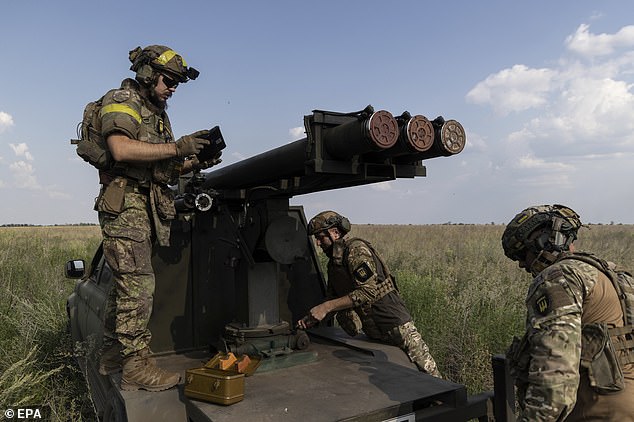
Photo provided by the Donbass Special Forces Battalion of the 18th Slavic Brigade of the National Guard of Ukraine
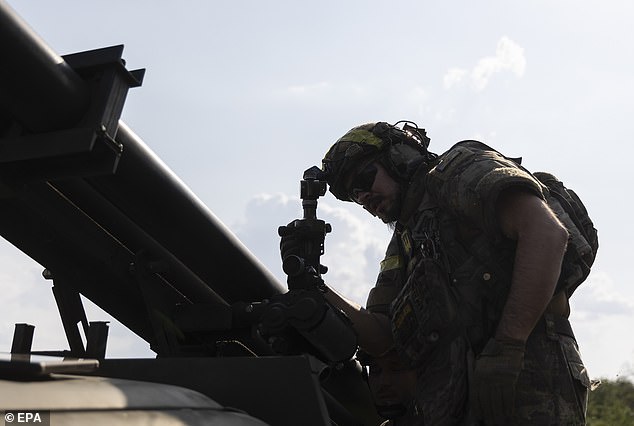
The new bonuses come amid warnings from Ukraine’s ambassador to the UK that Britain could soon face “all-out war” against Russia.
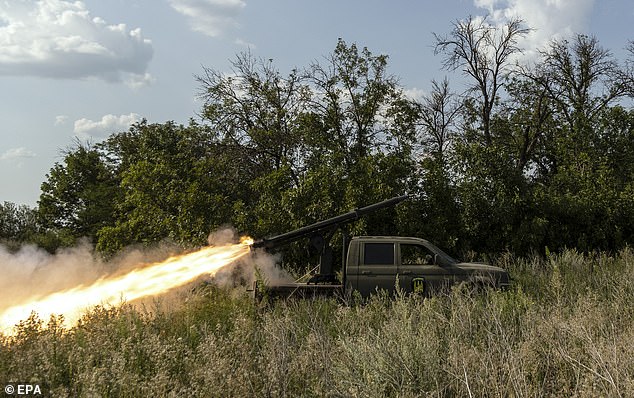
Britain’s new defence chief John Healey said the government was committed to investing 2.5 per cent of GDP in the military.
‘They require not only the effort of the army, but of society in general.
‘Society must therefore agree to give up a number of freedoms for the sake of survival, while politicians can and must mobilise the nation.’
Britain’s new defence chief John Healey said the government was committed to investing 2.5 per cent of GDP in the military, but gave no indication of when Labour would deliver on that commitment.
No major spending decisions are expected to be made until the Strategic Defence Review, launched last week, is completed.
Mr Healey also called on the armed forces to unite, leaving behind decades of infighting over who gets the most money.
He said: “Gone are the days when we could afford to think of inter-service rivalries. We must be prepared to fight, not to fight each other.”


